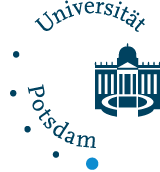Project A04
Steering chemical reactivity by non-local energy transfer via strong light-matter interaction
Principal investigators: Wouter Koopman, Henrike Müller-Werkmeister, Carsten Henkel
This project aims to establish a microscopic understanding of energy transfer under vibrational strong coupling (VSC) conditions, to steer chemical reactivity. We suggest that the delocalized nature of vibropolaritons allows manipulating reaction kinetics by opening a channel for long-range energy transfer. This hypothesis will be investigated using advanced Raman micro-spectroscopy techniques and ultrafast transient IR and 2D-IR spectroscopy. The experimental efforts will be complemented by theoretical modelling of the electromagnetic mode landscape and the energy transfer.
Position 1 (ID no. CRC1636A04-1/2023; Prof. Henrike Müller-Werkmeister, University of Potsdam):
Responsibilities:
Experimental implementation of VSC cavities in ultrafast 2D-IR spectroscopy. Measurements and data analysis of 2D-IR spectra under VSC conditions with a focus on intra- and intermolecular energy transfer processes.
Qualifications:
Master’s degree in physical chemistry, physics or a related discipline at the time of project start. Interdisciplinary mindset and excellent communication skills for working in the team. Ideal candidates have a background in either FTIR spectroscopy or ultrafast laser spectroscopy of molecular systems. Experience with nonlinear optics and femtosecond lasers as well as Python for data analysis, is strongly recommended. Experience with theoretical calculations (DFT), concepts of multidimensional spectroscopy or organic synthetic chemistry will be helpful.
Position 2 (ID no. CRC1636A04-2/2023; Dr. Wouter Koopman, University of Potsdam):
Responsibilities:
Extension of our micro-spectroscopy setup for back-focal plane Raman measurements. Modelling and fabrication of closed (Fabry-Perot) and/or open (metamaterial) cavities for strong light-matter interaction by evaporation and nano-structuring.
Qualifications:
Master’s degree in physics, physical chemistry or a related discipline at the time of project start. Interdisciplinary mindset and excellent communication skills for working in the team. Ideal candidates have a background in either micro-spectroscopy, Raman microscopy, nanofabrication and /or light matter strong coupling. Experience with Python for data analysis, numerical modelling and/or hardware programming strongly recommended. Experience with physical chemistry or molecular physics, E-beam lithography or COMSOL modelling will be helpful.
